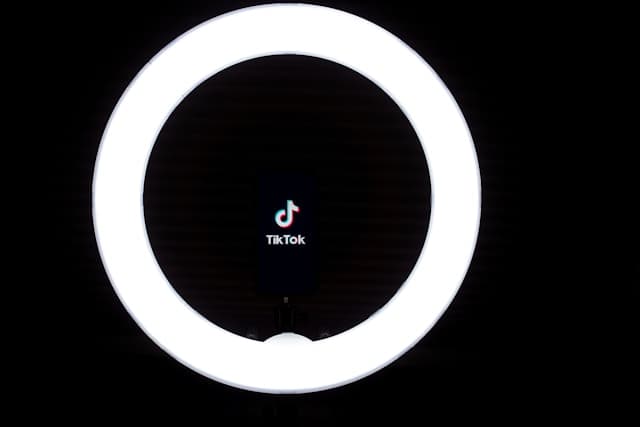
AI-Powered Engagement: How Social Media is Evolving in 2025

Table of Contents
Summary
How AI-Powered Engagement is Reshaping Social Media in 2025
As of 2025, artificial intelligence (AI) technologies have significantly transformed social media engagement strategies, enabling brands to connect with their audiences in innovative and personalized ways. These advancements encompass a range of tools and techniques, including AI-driven chatbots, predictive analytics, sentiment analysis, and augmented reality, all of which facilitate more meaningful interactions between businesses and users.
The integration of AI into social media platforms not only enhances user experience but also streamlines content creation processes, allowing brands to engage effectively and authentically in a rapidly evolving digital landscape. One of the most notable shifts is the rise of AI-powered chatbots, which offer real-time, personalized customer support and engagement. By utilizing natural language processing, these chatbots can conduct complex conversations, providing users with immediate responses to their inquiries and enhancing overall satisfaction.
Predictive analytics further revolutionize engagement by analyzing user behavior to forecast content preferences, enabling businesses to tailor their messaging and posting strategies more effectively. Moreover, sentiment analysis tools allow brands to gauge audience emotions, empowering them to adjust their content strategies proactively in response to consumer feedback.
In addition to these technologies, the increasing emphasis on authenticity and community building in user interactions marks a significant trend. Platforms like TikTok have shifted the focus towards genuine conversations and interactive content, as users seek deeper connections rather than passive consumption of information.
However, this evolution also raises concerns regarding data privacy and the potential erosion of authentic human interactions, particularly with the rise of AI-generated users and emotion-aware AI technologies. As brands navigate these complexities, the challenge lies in balancing technological innovation with ethical considerations and maintaining genuine relationships with consumers.
Looking ahead, AI's role in reshaping social media engagement is poised to expand further, driven by advancements in machine learning and user-centric technologies. The convergence of personalized content delivery, multimodal interactions, and community engagement will redefine how brands connect with their audiences. As businesses continue to leverage AI for strategic marketing, the implications for consumer trust, privacy, and engagement will be paramount in shaping the future of social media.
AI Technologies Driving Engagement
AI-Driven Chatbots
AI-powered chatbots are becoming integral to social media interaction, offering 24/7 customer support and personalized engagement. These intelligent systems can handle inquiries, complaints, and feedback with a level of detail and responsiveness that enhances user satisfaction.
By simulating human-like conversations, chatbots enable brands to maintain high engagement levels while automating routine interactions, thus freeing up human resources for more complex tasks. The advancement of Natural Language Processing (NLP) allows these chatbots to understand and respond to intricate queries, making them a vital component of modern customer service strategies.
Predictive Analytics
Predictive analytics leverages historical data to forecast user behavior and engagement trends. By analyzing past interactions, AI tools can identify the most effective content types and optimal posting times, significantly enhancing engagement strategies.
This capability allows businesses to stay ahead of emerging trends, ensuring that their content aligns with audience interests and preferences. For instance, AI can recommend content topics and hashtags likely to resonate with users, thus optimizing social media campaigns for maximum impact.
Sentiment Analysis
AI-driven sentiment analysis tools assess user-generated content to gauge audience perceptions of brands, products, and campaigns. By employing machine learning algorithms and NLP, these tools categorize comments as positive, negative, or neutral, offering valuable insights into consumer sentiment.
This capability enables brands to refine their engagement tactics, quickly identify potential PR crises, and adapt their content strategies to foster positive relationships with their audiences. Furthermore, sentiment analysis provides a qualitative edge over traditional metrics by capturing the emotional tone of interactions, thereby informing more nuanced marketing approaches.
Impacts on Content Creation
The integration of AI-powered tools is significantly transforming the landscape of content creation, particularly as we approach 2025. These advancements not only enhance creativity but also streamline production processes, allowing creators to focus on ideation and strategy rather than repetitive tasks.
AI-driven platforms enable content creators to produce a variety of materials—ranging from articles and social media posts to visually striking graphics—more efficiently than ever before.
Enhanced Productivity through Automation
AI tools, especially those utilizing natural language processing (NLP) and generative AI, facilitate a collaborative approach to content development. By automating tasks such as content generation and optimization, these tools help creators save time and reduce costs, allowing them to explore new creative avenues.
For instance, advanced text generators are expected to offer tailored content that resonates with specific audience segments, enhancing both relevance and engagement. Additionally, visual content creation tools, such as Canva and Adobe Spark, empower creators to design professional-quality graphics with minimal effort, democratizing access to high-quality visual content for small businesses and independent creators.
Personalization and Audience Engagement
Another anticipated trend is the rise of AI-driven personalization in content creation. As algorithms become more sophisticated, they will analyze user data to tailor content that aligns with individual preferences and behaviors.
This shift toward personalized content delivery not only fosters deeper connections with audiences but also optimizes engagement strategies by ensuring that content reaches the right users at the right time. Moreover, the integration of augmented reality (AR) into content creation tools is expected to offer immersive experiences, making narratives more interactive and impactful.
Ethical Considerations
As AI continues to transform social media engagement, ethical considerations have emerged as critical focal points for both consumers and brands. The rapid advancement of AI technologies brings with it a host of ethical challenges, particularly concerning data privacy, transparency, and user trust.
Data Privacy Concerns
In 2024, consumers are increasingly aware of the value of their personal data and are demanding greater control over its usage. Reports indicate that 73% of consumers express heightened concern about their data privacy compared to previous years, with many feeling their information is less secure than before.
This growing unease necessitates that brands adopt transparent data practices, clearly communicating how customer data is collected, used, and protected. Implementing consent-based strategies—where explicit user consent is required for data collection—fosters trust and aligns with regulatory requirements, such as the General Data Protection Regulation (GDPR) and the California Consumer Privacy Act (CCPA).
Ethical AI Use
The ethical use of AI in marketing involves addressing potential biases in algorithms and ensuring that AI tools are applied in a manner that respects user privacy and autonomy. Organizations must be proactive in creating frameworks that prevent the misuse of AI technologies, particularly in surveillance and misinformation, where the potential for harm is significant.
The challenge is compounded by the borderless nature of AI, requiring international collaboration to establish shared ethical standards that protect individuals globally.
Transparency and User Trust
Transparency is vital in maintaining user trust, especially as consumers demand clearer information regarding how their data is used. Companies should provide users with easy-to-understand options for managing their privacy settings and allow them to opt out of tracking or data sharing as they see fit. Additionally, brands must ensure they handle user requests for data deletion and unsubscribing promptly and in compliance with established regulations. Failure to adhere to user preferences can result in reputational damage and regulatory breaches.
The Impact of Emotion-Aware AI
The rise of emotion-aware AI technologies introduces further ethical dilemmas. These systems often require access to sensitive personal data, such as facial recognition inputs, raising significant privacy concerns. Misuse of such data, whether through breaches or unauthorized surveillance, poses risks to individual privacy and can lead to manipulative practices based on emotional data exploitation. Hence, it is crucial that organizations approach the deployment of these technologies with caution, ensuring ethical standards guide their development and application.
Case Studies

AI-Driven User Engagement
In 2025, various companies have harnessed the power of artificial intelligence (AI) to enhance user engagement across social media platforms, yielding significant improvements in user interaction and brand loyalty. These case studies exemplify the successful integration of AI into social media strategies.
IBM Watson Health: Revolutionizing Patient Care
One notable case is IBM Watson Health, which has applied AI to transform patient care. By analyzing vast amounts of healthcare data, Watson can offer personalized recommendations and improve patient outcomes. This not only enhances user engagement in the healthcare sector but also provides invaluable insights into patient preferences and behavior, showcasing the transformative impact of AI across industries.
Euroflorist: Optimizing Website Engagement
Euroflorist, a prominent floral retailer, utilized AI to enhance its website's conversion rates significantly. By deploying AI-driven tools to test various website designs in real time, Euroflorist achieved a 4.3% increase in conversion rates. This case underscores the potential of AI to analyze user interactions and preferences, enabling brands to make data-driven decisions that directly impact user engagement and satisfaction.
Social Media Platforms: Enhancing Content Delivery
Leading social media platforms like Facebook and Snapchat have also embraced AI to improve user experiences. Facebook employs AI algorithms to tailor content delivery based on user interactions, effectively personalizing the news feed to keep users engaged. Similarly, Snapchat uses AI for real-time camera filters and personalized content suggestions, making the app more entertaining and aligned with user interests.
Emerging Trends: Community Engagement
As user behavior shifts toward seeking more personalized and engaging experiences, brands are increasingly focusing on building communities rather than merely broadcasting messages. Platforms like Discord and Reddit exemplify this trend, where niche communities foster deeper engagement. AI-powered social listening tools enable brands to track trending topics and adapt their content strategies in real-time, enhancing user interaction and brand relevance.
Lessons Learned
These case studies illustrate the substantial impact of AI on social media engagement. Key takeaways include:
- Leveraging AI for personalized content delivery
- The effectiveness of data-driven decision-making
- AI's role in community building
As brands continue to innovate in the digital space, AI will undoubtedly play a critical role in shaping user experiences and driving engagement in 2025 and beyond.
Metrics and Evaluation

Importance of Metrics in Social Media Strategy
Metrics are vital for understanding the effectiveness of social media campaigns. They enable businesses to measure audience engagement through likes, shares, comments, and reach, illustrating how well content resonates with users.
- Engagement Rate – A holistic metric combining likes, comments, shares, and other interactions relative to the number of followers or impressions.
- Conversion Rate – Measures the percentage of users taking desired actions, such as purchases or sign-ups after engaging with content.
- Sentiment Analysis – Gauges audience emotions toward a brand, helping businesses monitor public perception and respond effectively to feedback.
Setting Up a Metrics Dashboard
Creating a metrics dashboard is an effective way to consolidate and track relevant data. The process begins with defining clear goals, such as:
- Increasing brand awareness
- Driving engagement
- Boosting conversions
Once goals are established, businesses should select key performance indicators (KPIs) that align with these objectives. A well-structured dashboard helps brands track performance trends, optimize content strategies, and make data-driven decisions.
AI's Role in Metrics and Evaluation
AI technology is revolutionizing analytics by processing large datasets to uncover patterns and insights, allowing businesses to adapt quickly to changing audience preferences. AI-driven tools can:
- Track engagement in real-time
- Identify emerging trends
- Provide personalized recommendations based on user interactions
This capability enhances the effectiveness of social media strategies, ensuring brands maximize their impact and reach.
Future Trends
Personalization Through AI
AI's ability to analyze vast datasets will enable hyper-personalized content recommendations. Virtual assistants will remember past interactions, allowing for tailored engagement strategies.
Multimodal Interactions
Social media will integrate multimodal interactions, combining text, voice, and visual inputs. Users will be able to interact using voice commands, facial recognition, and AR experiences.
Emotion Recognition
AI is evolving to detect emotions through voice tone and facial expressions. Brands will be able to adjust their messaging in real-time based on a user's mood, creating more empathetic and effective marketing strategies.
AI-Powered Chatbots
AI-powered chatbots will handle more complex interactions, making social media a fully interactive platform where users receive real-time, contextual support.
AI Tools in Social Media Content Creation
Overview of AI Tools
AI has revolutionized content creation by enabling automation and enhancing creativity. Popular AI tools include:
- Midjourney – Generates stunning visuals
- ChatGPT – Assists in content writing and social media captions
- Claude AI – Analyzes data trends for content optimization
- Eleven Labs – Provides human-like voiceovers
AI's Role in Content Optimization
AI tools help refine and repurpose existing content, maximizing engagement and reach. By automating tasks like A/B testing, keyword analysis, and real-time performance tracking, AI ensures that every post is optimized for success.
Conclusion
Artificial intelligence is revolutionizing social media engagement in 2025, allowing brands to personalize user experiences, optimize content, and build stronger communities. The integration of AI-powered chatbots, predictive analytics, and sentiment analysis enables businesses to engage more effectively with their audiences.
As social media continues to evolve, businesses must adapt to AI-driven trends while ensuring ethical transparency, data protection, and genuine interactions. With the right AI tools and strategies, brands can enhance their digital presence, foster trust, and drive deeper engagement in an ever-changing digital world.
Enhance Your AI-Powered Engagement with ReplyPilot
AI-driven engagement is the future of social media. ReplyPilot helps brands automate responses, analyze engagement data, and optimize content strategies—ensuring businesses stay ahead in 2025 and beyond.
Try ReplyPilot today and experience the power of AI-enhanced social media engagement!
Continue reading
More posts about ai and social media and social media engagement




